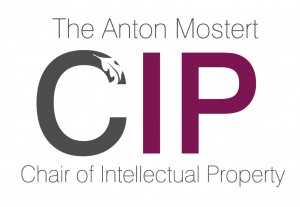The Pan-African Intellectual Property Organization (PAIPO) Draft Statute
Introduction Because intellectual property rights are territorial in nature (i.e. they have to be recognised by the country in which protection is sought), since the expansion of cross-border trade in the 19th century, authors, creators, designers, inventors and traders have sought similar protection in other countries to that which they enjoy in their domestic legal systems, or, at least, be afforded the protection enjoyed by nationals of the foreign country. This need initially gave rise to a number of bilateral agreements, and then multilateral treaties or conventions. These treaties or...
Read MoreFriend or Foe? – Publicly Funded IP
The introduction of the new IPR from Publicly Funded Research and Development Act is a significant milestone in empowering local universities in their negotiations with industry partners around research funding and managing the results flowing out of such research. The importance and value of intellectual property, which until recently was a vague term in the language of most academics, was highlighted and prominence was given to it at all levels of the University. The Technology Transfer Office (TTO) made use of the opportunity to educate academics and to increase the disclosure rate at...
Read MorePatently Wrong – The jury’s verdict in Apple v Samsung
All is fair in love and (patent) war, but apparently not when it comes to awarding damages in patent litigation. After nearly 18 months of protracted trench-warfare between Apple and Samsung’s formidable IP legal teams in the Northern District Court of California, Judge Lucy Koh surrendered the matter to a panel of 9 laymen (and women). A mere 22 hours later the (well rested and fed) jury had finished studying Judge Koh’s 109 page instructions and 26 pages of the parties’ juror forms, answered all 56 factual and legal questions and ticked all of the 250+ boxes of the baffling verdict...
Read MoreAssignments of IP to non-residents: the amended Exchange Control Regulations
The Exchange Control Regulations (the “Regulations”) have been amended with effect from 8 June 2012 (Government Gazette No. 35430) to provide that transfers of ownership of intellectual property from a South African resident to a non-resident now require prior Treasury approval. While this amendment to the Regulations has drawn comments or criticisms from commentators, these have principally related to, inter alia, the apparent reversal of the stated policy of relaxing exchange controls or the alleged invalidity of the amendment. In contrast, the purpose of this note is to briefly...
Read MorePopularisation of Intellectual Property
INTRODUCTION Intellectual property is commonly regarded as an esoteric branch of the law. It is characterised by being complex and until recently it has been a little understood and somewhat discrete area of the law. Its complexity stems from the fact that it has as its subject matter intangible items such as marks, ideas, concepts, goodwill, cultural expressions and the like. This must be contrasted with tangible goods like vehicles, ships, equipment, household goods, and immovable items such as portions of land, all of which have a physical existence. The application of the law to...
Read MorePublic Outcry Against US Bills Felt Across The Globe
Two related United States Bills were recently the topics of much controversy. Public outcries and widespread online protests were followed by an unprecedented Internet blackout on 18 January 2012. The Internet blackout was supported by the likes of Google, Facebook, Reddit and Wikipedia to name but a few. The blackout was not only supported by the Internet high-and-mighties, but also thousands of lesser known sites rallying their users’ support against the Bills. Such was the nature of the blackout that Wikipedia, for example, took its English-language site entirely offline on 18...
Read More










